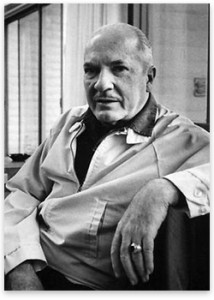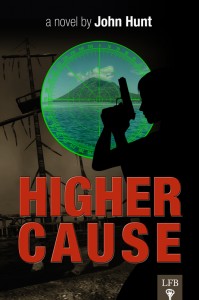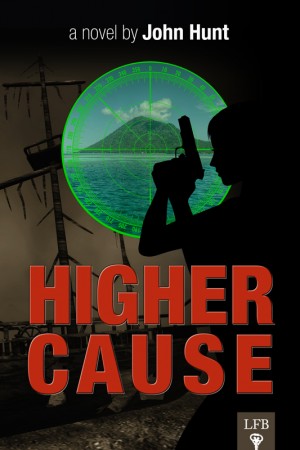
Robert Anson Heinlein (1907–1988)
In this episode of the Libertarian Tradition podcast series, part of the Mises Institute’s online media library, Jeff Riggenbach discusses the life of Robert Anson Heinlein (1907–1988), author of The Moon Is a Harsh Mistress and many other wonderful novels and short stories, and addresses the question of whether Heinlein was a libertarian.
You can also read the transcript below:
When Robert Anson Heinlein died 22 years ago this month, in Carmel, California, at the age of 80, the wonder of it all was that he had managed to live as long as he did. Heinlein, who was born in 1907 in Butler, Missouri, a small town about 65 miles south of Kansas City, had been in poor health for most of his adult life.
His family had connections with the powerful Pendergast political machine, the outfit that later put Harry Truman in the US Senate, but Heinlein still had to spend his freshman year in a two-year Kansas City “junior college” — what today we would call a “community college” — before the Pendergast machine was finally able to wrangle him an appointment to Annapolis. After graduating from the naval academy in 1929 with a degree in mechanical engineering, Heinlein went to sea as an officer. But in his fourth year of active duty, he contracted tuberculosis and was honorably discharged — retired, really, with a small pension — after a lengthy hospitalization at Navy expense.
[continue reading…]
Help Promote Prometheus Unbound by Sharing this Post


Before the third of the Batman trilogy hit theaters, I had heard that The Dark Knight Rises was a film without hope, with a long and dreary narrative that never loosens its grip. It leaves the viewer without a sense of answers.
I saw it and left confused. It saw it again, and left confused again. All the while, I kept wondering if this interpretive effort would pay off. Maybe it’s just another movie and lacks the ideological significance of the previous two.
I too had read several reviews that had condemned the film from a left-wing point view, arguing that it took a cheap shot at the Occupy Wall Street movement, suggesting that it consists mainly of brainless menaces who are easily manipulated by a strongman leader. The filmmakers deny this.
Regardless, this was probably the best political feature of the film.
However, the merit of its warning about left-wing populism was seriously compromised by the portrayal of the Gotham cops as saintly guardians of the social order. Neoconservatives loved this part of the film, made all the better to them because the prisons are full and Gotham is ruled by a civilian-led authoritarian regime of tight law and surveillance — the neocon dream come true.
What’s going on here? Why is the movie so full of mixed messages and, in the end, so unsatisfying?
Finally, it hit me. And this will be perfectly obvious once you hear it.
The problem is that the film gives Gotham (and us) a choice between two forms of despotism, one “left wing” and one “right wing,” and asks us to choose the lesser of two evils. We can have one of two systems: bureaucratic/authoritarian or revolutionary/dictatorial. The idea of a self-managing society is just out of the question. The film biases that choice by showing one as offered by the evil villain and the other by a corrupt, yet stable status quo.
[continue reading…]
Help Promote Prometheus Unbound by Sharing this Post


As part of a move toward more consistent branding, I have moved Prometheus Unbound to a new domain and changed the Feedburner url for our main posts rss feed.
Prometheus Unbound is now located at prometheus-unbound.org.
The old url, prometheusreview.com, will continue to redirect to the new one for the foreseeable future. But the site has permanently moved from the old url, so please update any links you have on your site or in your bookmarks.
If you don’t already have us on your “blogroll,” we’d appreciate it if you would add the new url to it. Give us some link love, baby, yeah.
The old Feedburner url for our main posts rss feed was feeds.feedburner.com/prometheusreview. The new one is feeds.feedburner.com/prometheusunbound/posts. The old url will remain active at least until January 2013 in order to give our community plenty of time to switch, but it will be shut down eventually so please do subscribe to the new url now rather than later.
Our apologies for the inconvenience, but we do think these changes will be better for Prometheus Unbound and our community in the long run.
If, while browsing through the site, you notice anything that looks broken or any strange characters like this “é,” we would greatly appreciate you letting us know so that we can fix the problem.
To make up for the inconvenience, some new features have been added to our community forums: unanswered posts list, polls, post previews, topic descriptions, and more.
Help Promote Prometheus Unbound by Sharing this Post

“The Cartographer Wasps and the Anarchist Bees” is a delightful fable,1 not only on account of the political themes it explores but also some very fine writing. The short story was first published in Clarkesworld Magazine (Issue 55, April 2011) and then republished by Escape Pod (Episode 343, March 2012). If you’re partial to audio fiction, you can spend a pleasant half hour listening to the story being narrated by Kate Baker (Clarkesworld) or Mur Lafferty (Escape Pod).2 Yu’s tale has been nominated for a 2011 Nebula Award and a 2012 Hugo and is a finalist for a Locus Award and the Million Writers Award, and it is deserving of all of these honors. Yu, a student at Princeton, is a new author to watch.
Yu’s tale warns of the transitive and cyclical nature of violence — from thoughtless destruction to calculated imperialism. It begins with a boy attacking a wasp nest and ending the uneasy truce between the wasps and his village. The villagers make an amazing discovery: the wasps had inked beautiful maps of the land (China) into the walls of their nest. Soon the wasps were hunted to near extinction and a group of survivors manages to escape.
The leader of the surviving wasps has learned well the hard lessons of realpolitick. Once the new nest has been established, she orders her wasps to expand aggressively. A nearby bee hive is enslaved and forced to pay tribute. The victim of violence has resolved to avoid being the victim ever again by becoming the oppressor.
But the subjugation of the bees has unintended consequences. Some of the bees are educated and trained in philosophy, science, and cartography. One day a bee with an inclination to anarchism is born and so educated and trained, and she produces a brood of anarchist sons…
[continue reading…]
Help Promote Prometheus Unbound by Sharing this Post


In case you missed the announcement, Laissez Faire Books is serializing a novel on its blog. The first installment (of 22) was published yesterday, and subsequent installments will be published weekly on Wednesdays. The novel, Higher Cause, appears to be a present-day to near-future thriller. The description mentions new forms of energy as well, so it may be a techno-political thriller or a bit science-fictional.
The author, John Hunt, is an Austro-libertarian and a medical doctor, “a pediatric pulmonologist and allergist, former navy officer, tenured associate professor at the University of Virginia, cofounder of several companies, as well as Trusted Angels Foundation.” His bio also mentions that he’s written another novel titled Assume the Physician, “a spicy, eye-opening, tear-jerking, belly-laughing romp, and is chicken soup for anyone who struggles in the medical system of America.”
Hunt describes his novel as having “timely sweeping themes, active free-thinking characters, conflicts affecting the world, spies, guns, explosions, new forms of energy, sinister conspiracies, government plots, nationalization, destruction, and hope.”
[continue reading…]
Help Promote Prometheus Unbound by Sharing this Post


The Libertarian Futurist Society issued a press release on Friday, July 13th, announcing the winners (plural) of the 2012 Prometheus Award for Best Libertarian Novel.
The winners and finalists, with links to our reviews:
The Winners
The Finalists
The 2012 Prometheus Hall of Fame Award winner is “The Machine Stops” by E.M. Forster.
Our Take
We’re not sure we would have recommended any of the finalists for the Prometheus Award this year.
We haven’t read The Freedom Maze yet, so we can’t question its selection as a co-winner. Maybe it is worthy and we’ll discover this if and when we get around to reading it. Clearly it meets the criteria of the LFS voting membership.
While we enjoyed Ready Player One we do not think it was libertarian enough to qualify for the Prometheus Award. The same goes for The Children of the Sky and The Restoration Game.
While In the Shadow of Ares was libertarian enough, and apparently written by actual libertarians (unlike many Prometheus Award winners), and we enjoyed it, we do think the writing quality was not quite there. The authors are ones to keep an eye on, however.
We’re currently reading Snuff and, as one would expect from Terry Pratchett, it is well written. Whether we think it is unambiguously libertarian enough remains to be seen. We’ll publish a review in early August.
We’d love to publish a review of Delia Sherman’s The Freedom Maze, if anyone is interested in submitting one.
[continue reading…]
Help Promote Prometheus Unbound by Sharing this Post

Ernest Cline is a science fiction fan and video game enthusiast who, as a former tech support employee, has spent most of his working hours surfing ’80s pop culture on the internet. As an author, he has successfully drawn from these interests to write an engaging story that weaves new technology with low-tech nostalgia. Although he has previously written about the gaming world (his screenplay Thundercade follows a video gamer’s quest to restore his championship gaming title), Cline takes the concept to an exciting new level in his science fiction novel Ready Player One, Prometheus Award finalist and our June Lightmonthly Read, which offers the reader a full immersion into the world of virtual reality gaming.
Ready Player One begins in the year 2044, and protagonist Wade Watts doesn’t have much going for him in the desolate Portland Avenue Stacks. He’s an overweight, unpopular orphan living with his aunt in a crowded RV park, where the RVs are stacked up to 20 units high in an effort to accommodate everyone in an overpopulated city fraught with power outages and gunfire. Wade finds solace by playing video games and watching reruns of family sitcoms from the ’80s, trying to lose himself in a decade when the world was a simpler and friendlier place. He also spends much of his free time logged into the OASIS, a massively multiplayer online game that has evolved into a virtual reality-based global network.
The online world of OASIS is not without conflict, however. The creator of OASIS, James Halliday, died five years before without naming an heir. At his behest, a contest is being held to determine who will control the OASIS. In his video will, Halliday explains that he has hidden three keys (Copper, Jade, and Crystal) to three gates in the simulated world of the OASIS. The first person to pass through all three gates will become heir to Halliday’s multi-billion dollar estate and gain full control of the OASIS.
Desperate to find a way out of the Stacks, Wade becomes a gunter (short for “egg hunter,” a reference the Easter egg hidden in the video game Adventure). Because Halliday had an infatuation with ’80s pop culture, his death sparks a global obsessive interest; spiked hair and acid-washed jeans come back into style, and gunters attentively study the decade’s fads and trends in hopes of discovering a clue to the keys’ locations.
Wade hopes his own vast knowledge of the decade will give him an edge in the competition, but the odds are against him. He must race to find the keys before they are found by another gunter — or worse, by the Sixers, employees of the dangerous Nolan Sorrento and Innovative Online Industries, a corporation set on gaining control of OASIS at any cost.
[continue reading…]
Help Promote Prometheus Unbound by Sharing this Post



















